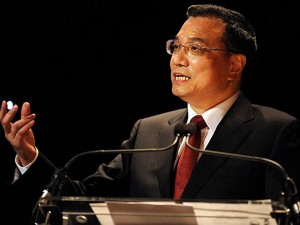 Chinese Premier Li Keqiang used the recent World Economic Forum to comment on the country’s economic health, noting that China Is going through a ‘crucial stage’ of economic restructuring that would gear it towards long-term prosperity.
Chinese Premier Li Keqiang used the recent World Economic Forum to comment on the country’s economic health, noting that China Is going through a ‘crucial stage’ of economic restructuring that would gear it towards long-term prosperity.
The world’s second-largest economy has been attracting headlines after new growth figures revealed it may not hit its ambitious growth targets. Economists have voiced concerns over China’s long-term economic strength and its true growth potential.
China has been one of the world’s fastest-growing economies for the past 20 years, routinely recording annual growth rates that make its Western counterparts seem sluggish by comparison.
However, that rapid growth may be coming at a cost, as slowing growth rates seem to indicate that China may be hitting its short-term growth cap and transitioning to a new era of economic development.
Mr Li claimed that China is on target to reach its 7.5 percent annual growth target for this year, and that the country would emerge in a strong position despite going through a ‘complex’ economic period.
China’s economic plan includes strengthening relations with foreign companies that operate in the country, and giving them ‘equal treatment’ with the large state-owned corporations that currently dominate the Chinese market for goods and services.
Mr Li claimed that China is at a ‘crucial stage’ that ‘will not be able to sustain growth’ without structural transformation and upgrading. He noted that the large East Asian economy faces uncertainties in its efforts to restructure and refocus its operations.
In order to improve economic growth, the Chinese government has let its currency increase in value and attempted to improve domestic production of products that are currently imported.
It has also liberalised interest rates and launched a number of programs to increase demand for Chinese-made products domestically. The country will also attempt to control local government debts, which make up a quarter of annual output.





